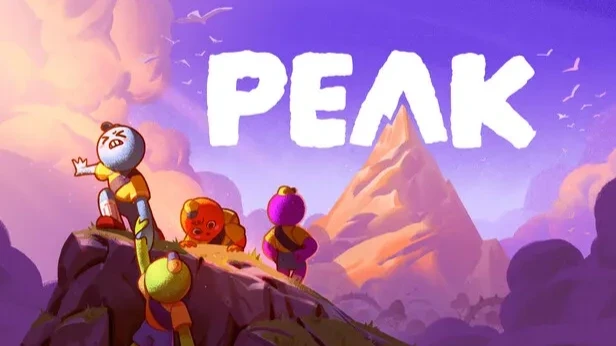
PEAK Game: A Parent’s Guide to Content and Child Suitability
In today’s digital age, video games have become a significant part of children’s lives, offering both entertainment and educational value. However, with the vast array of games available, parents often find themselves questioning which titles are appropriate for their children. One such game making waves in the gaming community is PEAK. This article aims to provide parents with a comprehensive guide to the game and help evaluate whether it is safe and appropriate for children.
What Is PEAK About?
PEAK is an engaging cooperative climbing adventure game developed by Landfall in collaboration with Aggro Crab, known for their innovative and humorous takes on multiplayer experiences. Released on June 16, 2025, for Windows via Steam, the game invites players to scale procedurally generated mountains filled with environmental challenges, biomes, and obstacles that demand precise coordination and strategy.
The core mechanics revolve around physics-based climbing where players, either solo or in groups of up to four, must manage stamina, collect supplies, and support each other to avoid falls that can reset progress. Unique gameplay features include floaty, silly physics that add unpredictability and humor, making every ascent a mix of tension and laughter. Multiplayer elements shine through online co-op, where communication and teamwork are essential — players literally pull each other up, fostering bonds but also potential for chaotic fun.
Landfall, the studio behind hits like Content Warning, brings their signature style of accessible yet challenging gameplay to PEAK, emphasizing survival and exploration in a whimsical adventure setting. This peak game stands out for its blend of adventure and social interaction, appealing to those who enjoy collaborative challenges.
The Rising Popularity of PEAK
PEAK has skyrocketed in popularity since its launch, achieving remarkable milestones that highlight its appeal in the gaming community. Within its first week, the game sold over 1 million copies, surpassing expectations and outperforming some of Landfall's previous titles. This sales surge continued, with estimates reaching up to 5 million copies sold in just one month, generating significant revenue and buzz.
On Steam, PEAK boasts a "Very Positive" rating, with 93% of over 45,000 reviews praising its fun, replayability, and co-op dynamics. The game's success can be attributed to its low entry price, viral word-of-mouth, and the thrill of shared experiences that resonate with players worldwide. Peak reviews often highlight how the game's simple yet addictive premise — climbing endless peaks — keeps sessions fresh and engaging.
PEAK on TikTok and YouTube
Due to its popularity, PEAK has become a trending topic among influencers on platforms like TikTok and YouTube. Viral compilations showcase epic fails, hilarious survival moments, and creative strategies, drawing millions of views and inspiring user-generated content. Influencers and streamers frequently share gameplay highlights, such as ranked lists of the best peak game moments or live sessions filled with laughter and frustration. On YouTube, channels compile the funniest TikTok clips, while full playthroughs demonstrate the game's chaotic co-op nature, often featuring collaborations that amplify its social appeal.
This exposure has fueled trends where players recreate in-game scenarios, boosting the game's visibility among younger audiences. However, with children potentially accessing this content, parents should be vigilant.
With the help of the Kroha Parental Control app, parents can monitor the videos their child watches on YouTube and set limits on their YouTube and TikTok usage. Such parental control tools, like Kroha, offer features to restrict app time, block inappropriate content, and track online activity, ensuring a safer digital environment while allowing kids to enjoy trending games responsibly.
Age Rating
Although Steam does not provide an official age rating for the game, based on its content, it is recommended for children aged 13 and older. The peak game's themes involve challenging climbs with risks of falling and restarting, which may include mildly frightening elements like treacherous obstacles or high-stakes failures. While there's no explicit violence or gore, the frustration from repeated attempts could overwhelm younger players. Parental discretion is advised, considering factors like emotional maturity and ability to handle cooperative stress. This age rating aligns with similar co-op adventures that emphasize skill and teamwork over intense content.
Positive Aspects of the Game
PEAK offers several benefits that can positively influence children's development when played in moderation.
- Encourages teamwork: The game's design requires players to communicate and assist each other, teaching collaboration and empathy in a fun setting.
- Fosters problem-solving skills: Navigating procedural mountains and obstacles hones critical thinking and strategic planning.
- Promotes creativity: Players experiment with different climbing techniques and item uses, sparking imaginative approaches to challenges.
- Offers opportunities for joint play with parents: Co-op mode allows family bonding, turning gaming into a shared activity that strengthens relationships.
These elements make PEAK a potentially enriching experience, aligning with educational aspects of gaming.
Negative Aspects of the Game
Despite its positives, PEAK has drawbacks that parents should consider, particularly regarding children's well-being.
- Risk of screen addiction: The addictive loop of climbing and retrying can lead to excessive playtime, impacting daily routines.
- Potentially frightening elements: Sudden falls or eerie biomes might scare sensitive kids, causing anxiety.
- Emotional impact and frustration: Frequent failures in co-op can result in anger or disappointment, affecting mood.
- Concerns about mental well-being: Prolonged sessions may contribute to stress or reduced social interactions outside gaming.
Balancing these risks is key to safe enjoyment.
Parental Tips
To ensure PEAK is a positive experience, parents can implement these strategies:
1. Monitor your child’s emotional reactions: Watch for signs of frustration or fear during play and discuss feelings openly.
2. Maintain open communication: Talk about in-game experiences to reinforce lessons on teamwork and resilience.
3. Play or watch the game together: Join sessions to guide and bond, turning it into family time.
4. Set screen time boundaries: Use tools like parental control apps to limit sessions and prevent addiction.
5. Encourage a variety of activities outside of gaming: Promote outdoor play, reading, or hobbies to maintain balance.
These tips help mitigate negatives while maximizing benefits.
Conclusion
PEAK stands as an exciting peak game that blends adventure with social elements, offering valuable lessons in teamwork and perseverance. Developed by Landfall, it has captured hearts with its rising popularity and positive reviews.
However, mindful use is essential, considering the age rating and potential impacts on screen time. By employing parental control measures and active involvement, parents can guide children toward safe, enjoyable play.
Ultimately, PEAK can be a rewarding addition to family gaming if approached thoughtfully.
Recent articles
Amino App: What Should Parents Know?
In today's digital age, social networks play a significant role in the lives of children and teenagers. Among the myriad of platforms available, Amino App has gained substantial popularity among the younger audience. But what exactly is Amino, and is it safe for children? This article delves into the features of Amino, its appeal to youth, potential risks, and the measures parents can take to ensure their children's safety while using this platform.
What Is Nano Banana and Is It Safe for Kids? A Parent’s Guide
In today’s rapidly evolving digital landscape, viral trends capture the attention of millions, and one example is Nano Banana — a new phenomenon that has quickly taken over TikTok and YouTube Shorts.
As artificial intelligence (AI) continues to advance, tools such as the nano banana— a part of the broader Google Gemini universe — provide exciting possibilities for image processing and content creation. However, while these AI art generators and AI picture generators offer innovative ways to create ai generated images and transform selfies into dynamic avatars, there are potential privacy risks, especially for children.
For any parent, understanding what nano banana is, recognizing its hidden dangers, and knowing how to safeguard your kids using effective parental control measures is paramount.
This article explains what nano banana is, examines key risks such as privacy breaches, cyberbullying, NSFW content, and screen addiction, and provides practical steps, including using apps like Kroha for parental control, to protect your child. Through real-life examples, expert advice, and citations from reputable organizations, we aim to empower parents with the knowledge they need in this brave new era of artificial intelligence in education and entertainment.

